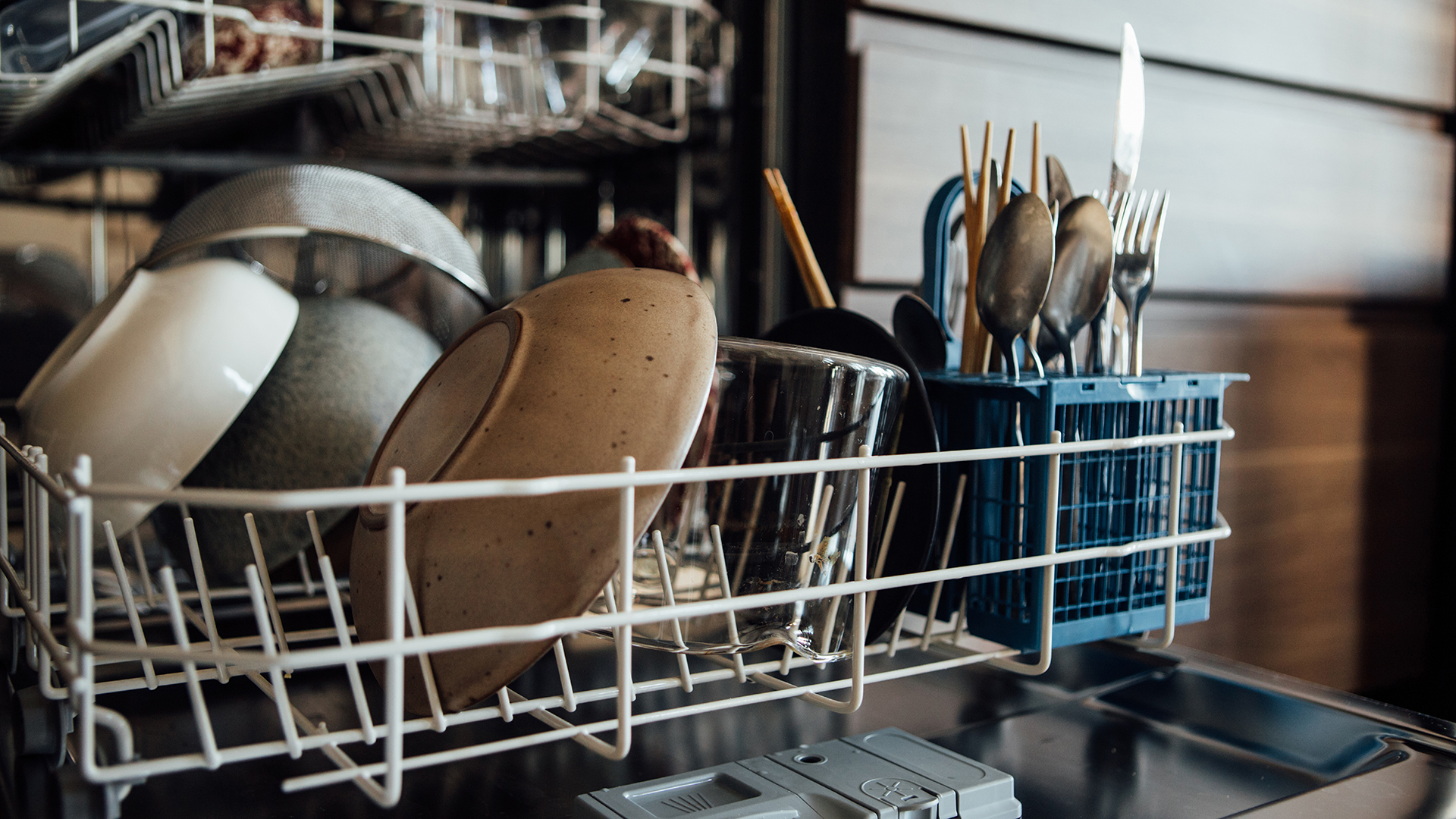Do dishwashers use a lot of electricity?
While hand washing dishes can be tedious, dishwashers may save energy and time.

Nobody really likes doing the washing up by hand, but if you’ve been trying to cut down on your energy bills, you might have avoided splashing out on one of the best dishwashers. Are they bad for your budget or could you be saving time as well as effort by opting to load up the dishwasher after dinner instead? If you’re considering swapping good old-fashioned elbow grease for a dishwasher, there are a few things to keep in mind. Justin Cornforth is the owner of Ace Home Co., and we asked him about the energy consumption of a dishwasher and whether many of us have misconceived ideas about the gadget.
Justin says: “Dishwashers are actually quite efficient, especially new models. On average, a dishwasher uses 1200 and 2400 watts of power, with an average dishwasher using 1800 watts.” So, it seems they’re not quite as energy-guzzling as you might think. “A surprising fact: dishwashers are often greener than handwashing, using 4x less water and cutting emissions by 75%!” says Justin, especially if people are leaving the tap running while hand washing instead of using a bowl for the water.

Justin Cornforth is the owner of Ace Home Co, a family-owned company founded in 2017. With a strong emphasis on professionalism and expertise, Justin continues to lead his team in exceeding customer expectations and ensuring that all plumbing, electrical, heating, and air needs are met with excellence.
Check the energy rating
You can go one step further, especially if your dishwasher is old and has seen better days, by upgrading to a new Energy Star-rated dishwasher. The Energy Star rating is a scale usually from 1 to 100, which rates each device for how energy-friendly they are. The higher the stars, the better it is for the planet (and your wallet).
Justin explains: “Energy Star-certified dishwashers are about 12% more energy-efficient and 30% more water-efficient than non-certified models. Plus, modern models, if you maintain them properly, can last 10-15 years, and it will minimize environmental impact compared to the wastefulness of frequent replacements.”
What are some of the ways to get the best out of your dishwasher?
Justin recommends making sure you follow some basic rules to take care of your dishwasher, to increase the longevity and to also make it more energy efficient. Some of these tips and tricks can be done regularly, so set a diary reminder for these to remind you to clean the filter monthly and descale with vinegar quarterly.
Does how you load the dishwasher help?
Yes! Justin stresses the importance of loading the dishwasher properly and recommends having the plates facing inward with bowls facing down to enhance both energy use and cleaning power.
He recommends: “To reduce energy consumption even more, run the dishwasher only when it's fully loaded.” It might mean leaving things for a day or two before running it if there’s only one or two people in the household, but it will help to cut down on your costs. He adds: “Try to use only eco or energy-saving mode, and when possible, skip the heated drying cycle and air-dry dishes instead. “
Sign up to receive the latest news, reviews, buying guides and deals direct to your inbox
What to look for in a new dishwasher?
It can be easy to be overwhelmed by the choices available when browsing for a new dishwasher or any type of white goods, so Justin has a tip on what to keep an eye out for.
The expert explains: “If you are planning to buy a new washer, look for not only an Energy Star certificate but also for models that use less water and have soil sensors, which adjust energy and water based on the load's dirtiness. Also there are newer dishwashers that can sync with smart grids, running during off-peak energy hours for additional savings."
Step away from the washing up gloves, it’s time to let the technology take the strain instead.

Jen Thomas, a freelance journalist and Magic Radio presenter, is renowned for her 20 years of expertise in reviewing vacuums for Top Ten Reviews. She loves leopard print, houseplants, and mixing patterns. She trains her rescue dog in her free time and tends to her balcony garden.
